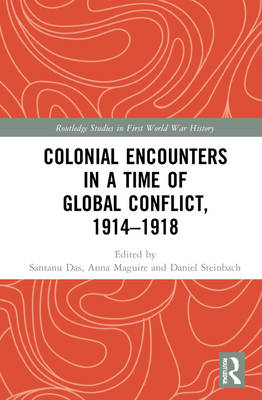
- Retrait gratuit dans votre magasin Club
- 7.000.000 titres dans notre catalogue
- Payer en toute sécurité
- Toujours un magasin près de chez vous
- Retrait gratuit dans votre magasin Club
- 7.000.0000 titres dans notre catalogue
- Payer en toute sécurité
- Toujours un magasin près de chez vous
Colonial Encounters in a Time of Global Conflict, 1914-1918
Description
This volume gathers an international cast of scholars to examine the unprecedented range of colonial encounters during the First World War. More than four million men of color, and an even greater number of white Europeans and Americans, crisscrossed the globe. Others, in occupied areas, behind the warzone or in neutral countries, were nonetheless swept into the maelstrom. From local encounters in New Zealand, Britain and East Africa to army camps and hospitals in France and Mesopotamia, from cafes and clubs in Salonika and London, to anticolonial networks in Germany, the USA and the Dutch East Indies, this volume examines the actions and experiences of a varied company of soldiers, medics, writers, photographers, and revolutionaries to reconceptualize this conflict as a turning point in the history of global encounters. How did people interact across uneven intersections of nationality, race, gender, class, religion and language? How did encounters - direct and mediated, forced and unforced - shape issues from cross-racial intimacy and identity formation to anti-colonial networks, civil rights movements and visions of a post-war future? The twelve chapters delve into spaces and processes of encounter to explore how the conjoined realities of war, race and empire were experienced, recorded and instrumentalized.
Spécifications
Parties prenantes
- Editeur:
Contenu
- Nombre de pages :
- 328
- Langue:
- Anglais
- Collection :
Caractéristiques
- EAN:
- 9781138082106
- Date de parution :
- 29-09-21
- Format:
- Livre relié
- Format numérique:
- Genaaid
- Dimensions :
- 156 mm x 234 mm
- Poids :
- 653 g

Les avis
Nous publions uniquement les avis qui respectent les conditions requises. Consultez nos conditions pour les avis.





